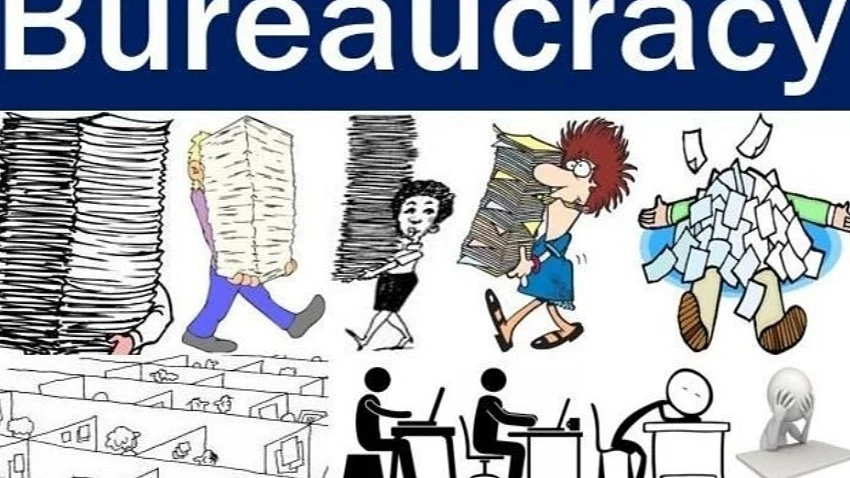Too much paperwork, too many forms, registers, reports: What ails the Indian bureaucracy?
Sachin Pilot was surprised to see that an Anganwadi worker has to keep 18 registers while the number of children present at such centres was much less than the number of registers

A few years ago I visited a rural school in district Singhbhum, Jharkhand. I wrote on the black board a two digit subtraction (31 minus 18), and asked the class V students to do it. Then I went round the desks, and found that hardly half of the students could do it correctly.
Next day when I met the District Collector, I asked him if he or his team monitored quality of learning. He said, 'Sir, you are the first person to be asking me this question. Government has never asked this, they only want to know if I have spent the allotted budget, built the new classrooms, and recruited the requisite number of teachers. There is no column in my format about the quality of learning'.
Sachin Pilot in 2008 visited remote tribal areas to understand how ICDS functions. He was surprised to see that the anganwadi worker has to keep 18 registers while the number of children present at such centres was much less than the number of registers. He also discovered that all data of children on weight, vaccinations, health records etc, was fudged to make the centre’s performance look good!
At present officials at all levels spend a great deal of time in collecting and submitting information, but these are not used for taking corrective and remedial action or for analysis, but only for forwarding to a higher level, or for answering Parliament/ Assembly Questions.
Moreover, outcomes are hardly measured; and the system gets away with inflated reporting. There is great pressure on the field staff to spend the allotted funds, but not on achieving longer-term results, because those are not monitored. Thus, financial planning is divorced from physical planning.
Equally, state governments do not discourage reporting of inflated figures from the districts, which again renders monitoring ineffective.
As data are often not verified or collected through independent sources, no action is taken against officers indulging in bogus reporting. The practice is so widespread in all the states, presumably with the connivance of senior officers, that the overall percentage of severely malnourished grade III & IV children, according to the data reaching GOI from Jharkhand was only 0.5 per cent, as against 16 per cent reported by Unicef in its survey.
The field officials are thus able to escape from any sense of accountability for reducing malnutrition. One district head, when confronted with this kind of bogus figures, told me that reporting correct data is “a high-risk and low-reward activity”!
The situation can easily be corrected by greater transparency of the district records that should be put on a website, and by frequent field inspections by an independent team of experts, nutritionists, and grassroots workers. The Ministry of Women and Child Development at the Centre should also pull up the States for not recognising and reporting almost 90 percent of the severely malnourished children.
Finally,
A good civil service is necessary but not sufficient for good governance; a bad civil service is sufficient but not necessary for bad governance.
Thus, a dilapidated civil service has been a key factor in Africa’s economic decline. Conversely, a strong civil service is one of several reasons why in several east Asian economies, especially Japan, Singapore and South Korea, authoritarianism has co-existed with excellent economic performance.
Greater responsiveness and openness can legitimately be demanded of public administrations in many East Asian countries. Clearly, civil service systems in most East Asian countries cannot be considered a problem; they are, rather, an important part of the solution to these countries’ other problems.
Unfortunately, in many Indian states, politics has become a business. Politicians put pressure on the system with a view to maximising private gains. Governance reforms are intractable under such 'kleptocracy' that exploits national wealth for its own benefit and is, by definition, uninterested in transparency and accountability.
A pliable and unskilled civil service is actually desirable from its point of view - public employees dependent on the regime's discretionary largesse are forced to become corrupt, cannot quit their jobs, and reluctantly become the regime's accomplices. Providing financial assistance to such states by the Central Government without linking it with performance and reforms will be a waste of resources.
Niti Aayog's efforts to improve governance by publicising inter-state performance on key indicators is a laudable step. Let us hope the Aayog evaluates states on transparency, public satisfaction, and integrity too.
Follow us on: Facebook, Twitter, Google News, Instagram
Join our official telegram channel (@nationalherald) and stay updated with the latest headlines
